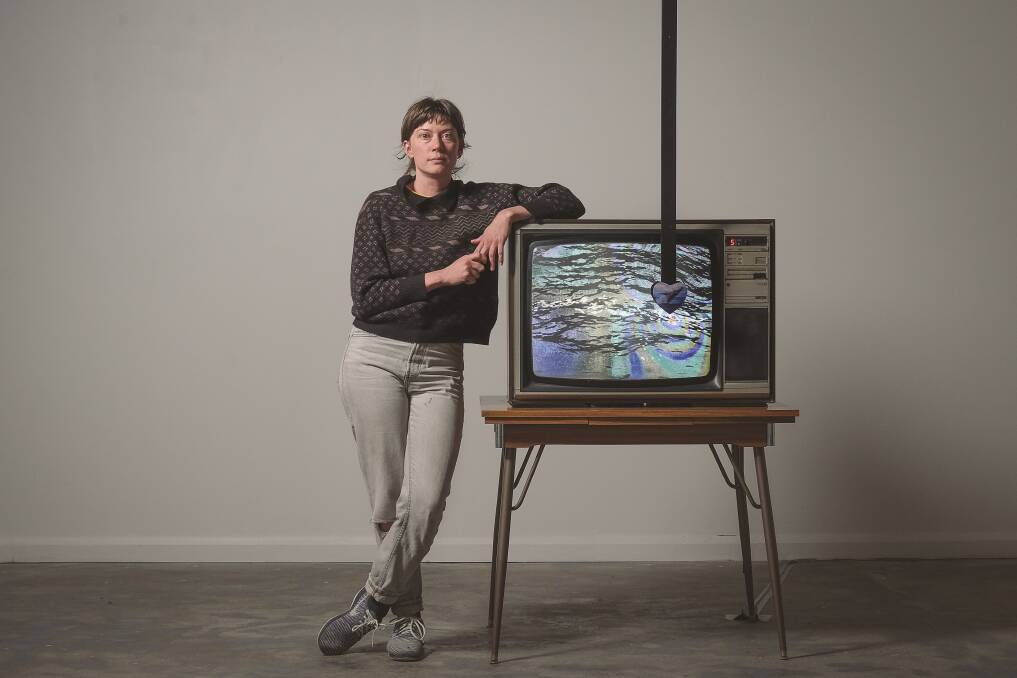
A new exhibition exploring the whaling industry has dived into Sawtooth ARI.
Subscribe now for unlimited access.
$0/
(min cost $0)
or signup to continue reading
Peak Whale Oil is a group exhibition by Ecological Gyre's Chantelle Mitchell and Jaxon Waterhouse, and artists Grace Connors, Jack Wansbrough, and Nadege Philippe-Janon.
All of the artists involved investigate the history of the Tasmanian whaling industry and the whale oil produced in Hobart in the 1800s through a contemporary lens.
Sawtooth ARI director Zara Sully said the exhibit was originally curated by their predecessor.
READ MORE: Ex-cop joins forces with reformed criminal
"It's one of those exhibitions that really had a chance to evolve because it's been postponed so many times by [COVID-19]," they said.
"Whaling is something we can't do anymore, but it was such a prevalent part of industry making for such a long time so this exhibition really tackles that ... and discusses something that we haven't thought about in a long time."
Sully said there were some really impactful works included in the show that not only spoke to the topic, but also stood alone for discussion too.
"It's a really interesting look into the whaling industry, focused on Tasmania," they said.
Philippe-Janon is a Hobart-based artist who was asked by Ecological Gyre to create work for the exhibition.
"I have got a pendulum set up in front of an old CRT television and on the pendulum there is a magnet ... and when you hold a magnet up to a CRT it moves the electrons," she said."
"So it creates these psychedelic colours coming out of it. On the TV there is also footage of the Derwent River.
"I like using movement and playing around with different materials."
READ MORE: Two teenagers rescued from flooded river
Philippe-Janon said there used to be many whales in the Derwent River during the 1800s, but now the river was one of the most polluted waterways in Australia.
"[My work] is connecting extraction industries from the 1800s of getting whales for the oil and what we are doing at the moment [with deep sea mining]," she said.
"[I hope people take away] an awareness of how we interact with our environments and our impacts."
The artist mostly works with lights and other things that have interesting optical properties to highlight the "aliveness" in materials.
Philippe-Janon often explores the intersections of science, nature, culture, and personal narrative while critiquing anthropocentric relations with the more-than-human world.
Her current work in the new exhibition took her a few months to complete, and she found it hard getting the motorised pendulum to work.
Peak Whale Oil was supposed to launch on Friday, but has been delayed until November 12 due to weather warnings. The show will run until December 21.
What do you think? Send us a letter to the editor:


